Kenneth Eugene Smith already survived one botched execution. Today he’ll become the first to die by nitrogen
Kenneth Eugene Smith is scheduled to become the first death row inmate to be executed with nitrogen. His pastor says the untested procedure is a cruel violation of religious liberties, Bevan Hurley reports

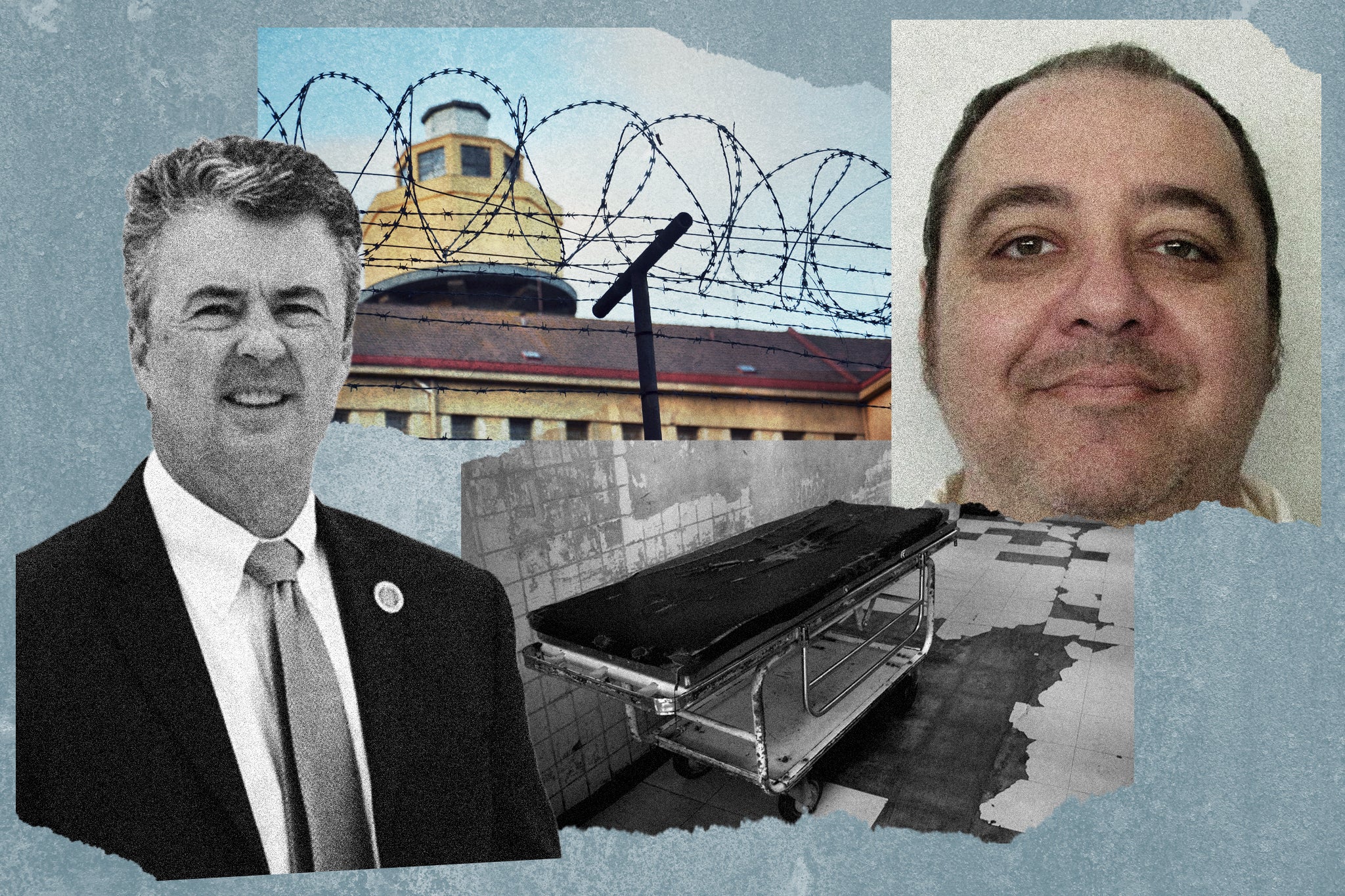
Your support helps us to tell the story
From reproductive rights to climate change to Big Tech, The Independent is on the ground when the story is developing. Whether it's investigating the financials of Elon Musk's pro-Trump PAC or producing our latest documentary, 'The A Word', which shines a light on the American women fighting for reproductive rights, we know how important it is to parse out the facts from the messaging.
At such a critical moment in US history, we need reporters on the ground. Your donation allows us to keep sending journalists to speak to both sides of the story.
The Independent is trusted by Americans across the entire political spectrum. And unlike many other quality news outlets, we choose not to lock Americans out of our reporting and analysis with paywalls. We believe quality journalism should be available to everyone, paid for by those who can afford it.
Your support makes all the difference.On 25 January, Alabama Department of Corrections (ADOC) officials will strap Kenneth Eugene Smith to a gurney in Holman Correctional Facility and pump his lungs full of pure nitrogen.
Having survived one horribly botched execution, Smith faces being put to death by a wholly untested method that has been decried as inhumane by death penalty experts and deemed unfit even for killing most mammals.
So experimental is “nitrogen asphyxia” as a form of capital punishment that ADOC has required Smith’s spiritual adviser Reverend Jeff Hood to sign a waiver that forces him to maintain a distance of at least three feet (.9m) during the execution.
The legal document states that it would be possible, though “highly unlikely”, that a hose supplying nitrogen to Smith's mask detaches from his face, filling an area around him with the potentially deadly odourless, tasteless, invisible gas.
“They’re asking for my trust,” Dr Hood told The Independent in an interview. “The problem is they have a history of being untrustworthy.”
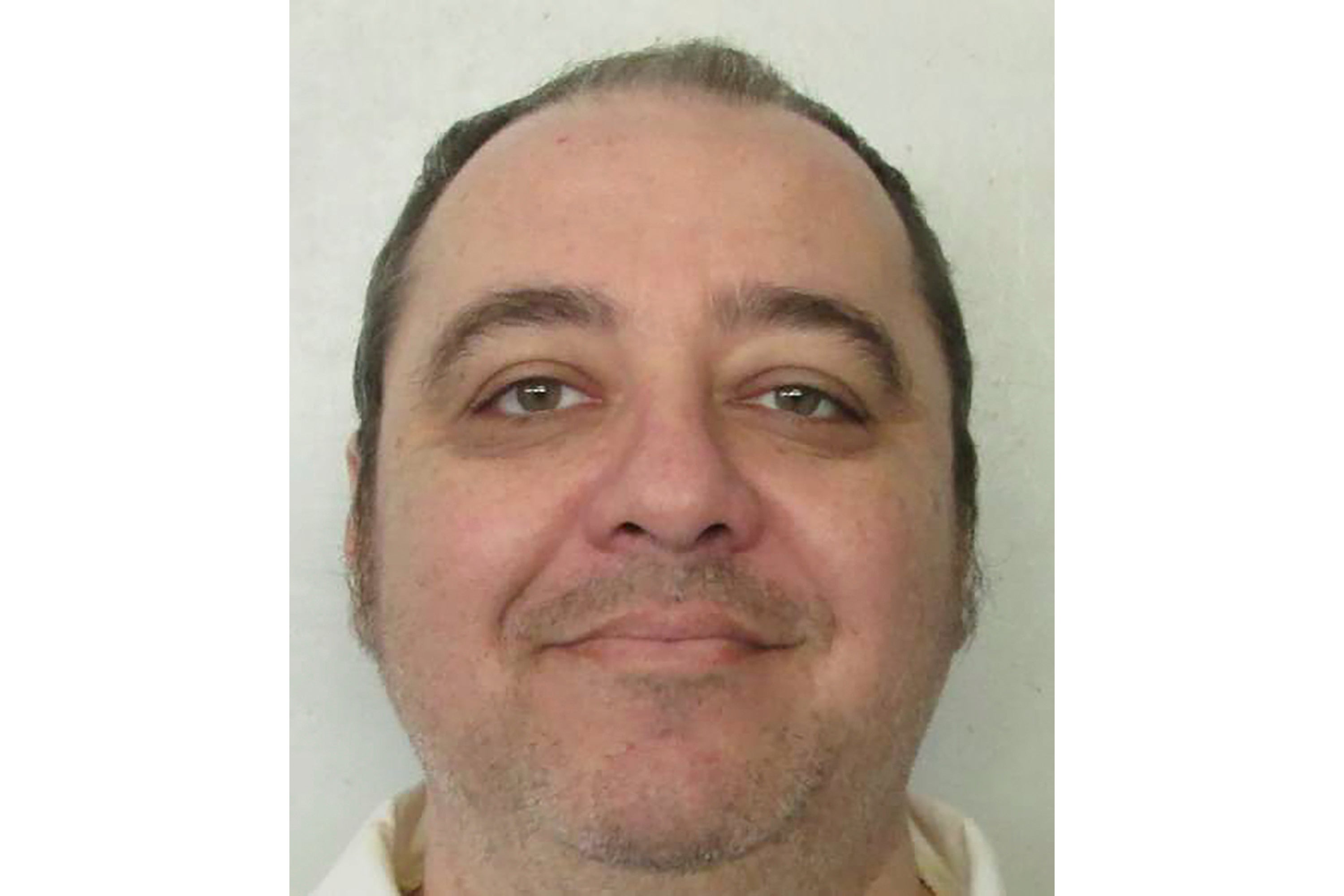
Dr Hood believes that depriving him of the sacred right to anoint Smith with oil and administering his last rites is unconstitutional as it infringes on his religious liberties.
On 13 December, he filed a lawsuit in Alabama contesting the state’s right for him to remain at a distance during the execution.
The Texas-based anti-death penalty activist has counselled dozens of death row prisoners and attended four executions in the past year in Oklahoma, Texas and Alabama.
He says Alabama stands out for its incompetence and bloodlust.
“I can tell you without a doubt that the state of Alabama is the most unprofessional, unprepared buffoonery that I have ever seen.
“The execution chamber looks like a medical procedure in other states. In Alabama, it looks like a torture chamber.”
Alabama’s dark history of bungled executions has death penalty advocates raising the alarm about the potential dangers of it becoming the first state to use nitrogen asphyxia.
‘Distressing for some species’
The first time Alabama attempted to execute Kenneth Eugene Smith in November 2022, the death row prisoner was punctured with intravenous needles repeatedly for nearly four hours.
Writhing in agony, the 58-year-old cried out for help as he was stuck “in the same hole like a freaking sewing machine,” he told NPR in a recent interview from his cell.
The execution was eventually called off after prison employees were unable to set an IV line into Smith’s veins, making it the third failed lethal injection attempt in Alabama in 2022. Death row inmates Joe Nathan James and Alan Miller experienced similar botched executions, which advocates say were akin to torture.
Governor Kay Ivey paused executions in the state and ordered an internal review of procedures.
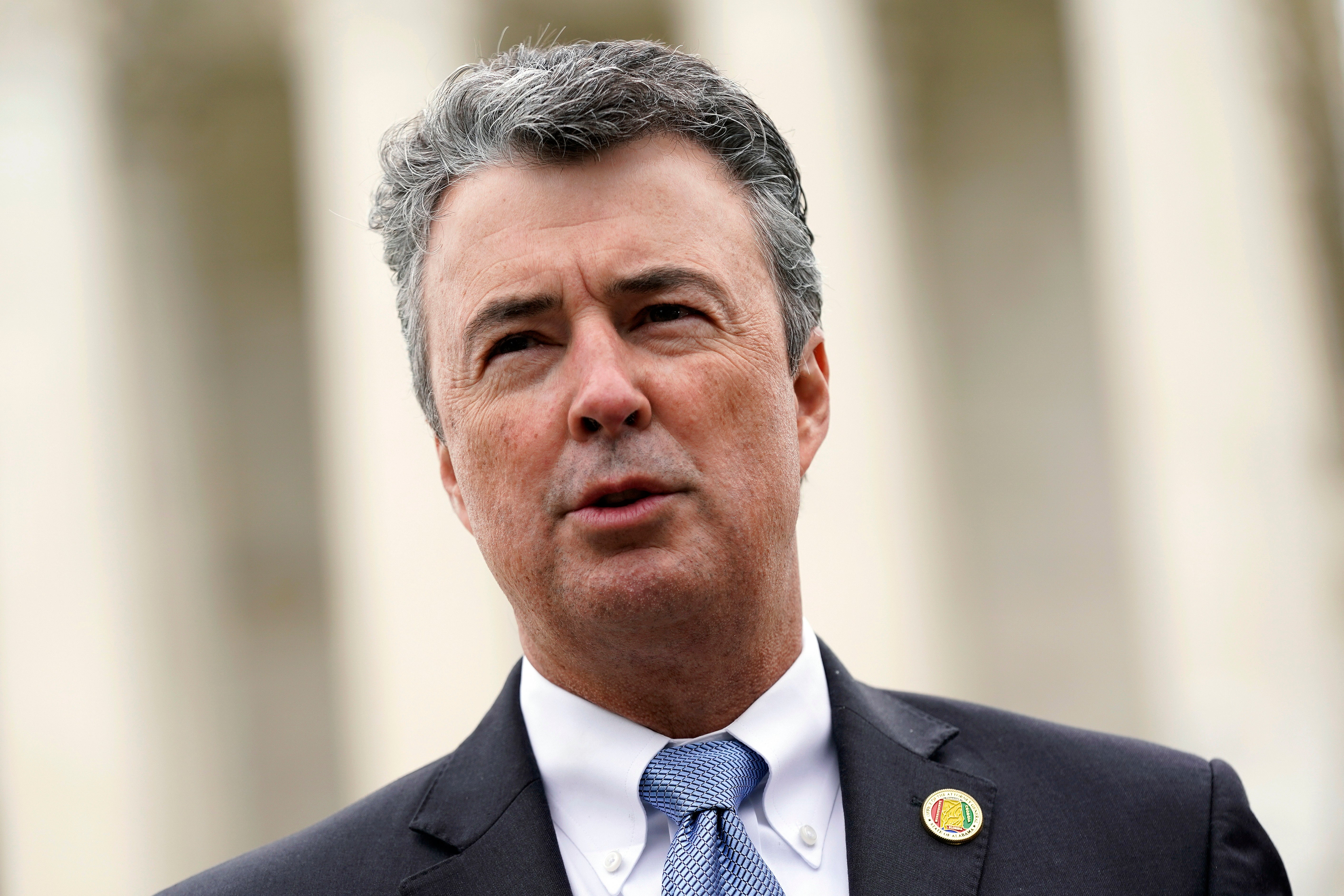
While other states such as Tennessee that had seen botched lethal injections hired independent advisers to investigate their use of lethal injection, Gov Ivey ordered ADOC to conduct an internal review.
In its report published in February, Commissioner John Hamm said the department was as “ready as possible” to resume executions.
When a prisoner challenges a method of execution, the state forces them to name an alternative.
So Smith filed a lawsuit requesting he be put to death by nitrogen hypoxia, one of three legal methods along with electrocution in the state.
The method is legal in three states but has never been implemented on a death row inmate in the US, or anywhere else that experts are aware of.
While it is used to kill poultry in the US, the American Veterinary Medical Association has rejected its use on almost all mammals and says it is “distressing for some species.”
After the US Court of Appeals for the Eleventh Circuit ruled in Smith’s favour, Alabama Attorney General Steve Marshall asked the US Supreme Court to weigh in and reverse the decision. When they declined, Smith’s execution was scheduled for 25 January.
In September, Smith filed a lawsuit asking judges to deny Alabama’s request to carry out his death sentence using the unproven method.
The Supreme Court denied the claim in November, prompting AG Marshall to thank the judges and prosecutors who had “cleared the way” for Smith’s execution.
“Though the wait has been far too long, I am grateful that our talented capital litigators have nearly gotten this case to the finish line.”
‘Abject incompetence’
Though nitrogen hypoxia sounds scientific, it is not even a medical term. It’s a made-up expression to describe low oxygen through the use of nitrogen gas, Joel Zivot, an expert on lethal injection and associate professor of anesthesiology at Emory University, told The Independent.
He prefers the term “nitrogen gas execution”.
“No one cares, seemingly, about the experience of the person that is dying, even though that’s what the law turns on,” said Dr Zivot.
“This whole thing is about the witness experience. How does it look? They think that nitrogen will kill people in a way that outwardly looks pretty mild. I’m not so sure.”
Many questions remain about whether the dose of nitrogen will have the desired effect of a humane death.
Dr Zivot wants to know exactly how the nitrogen will be administered, whether the prisoner will be given an anaesthetic, or if not, how their compliance will be enforced.
Alabama has so far refused to say.
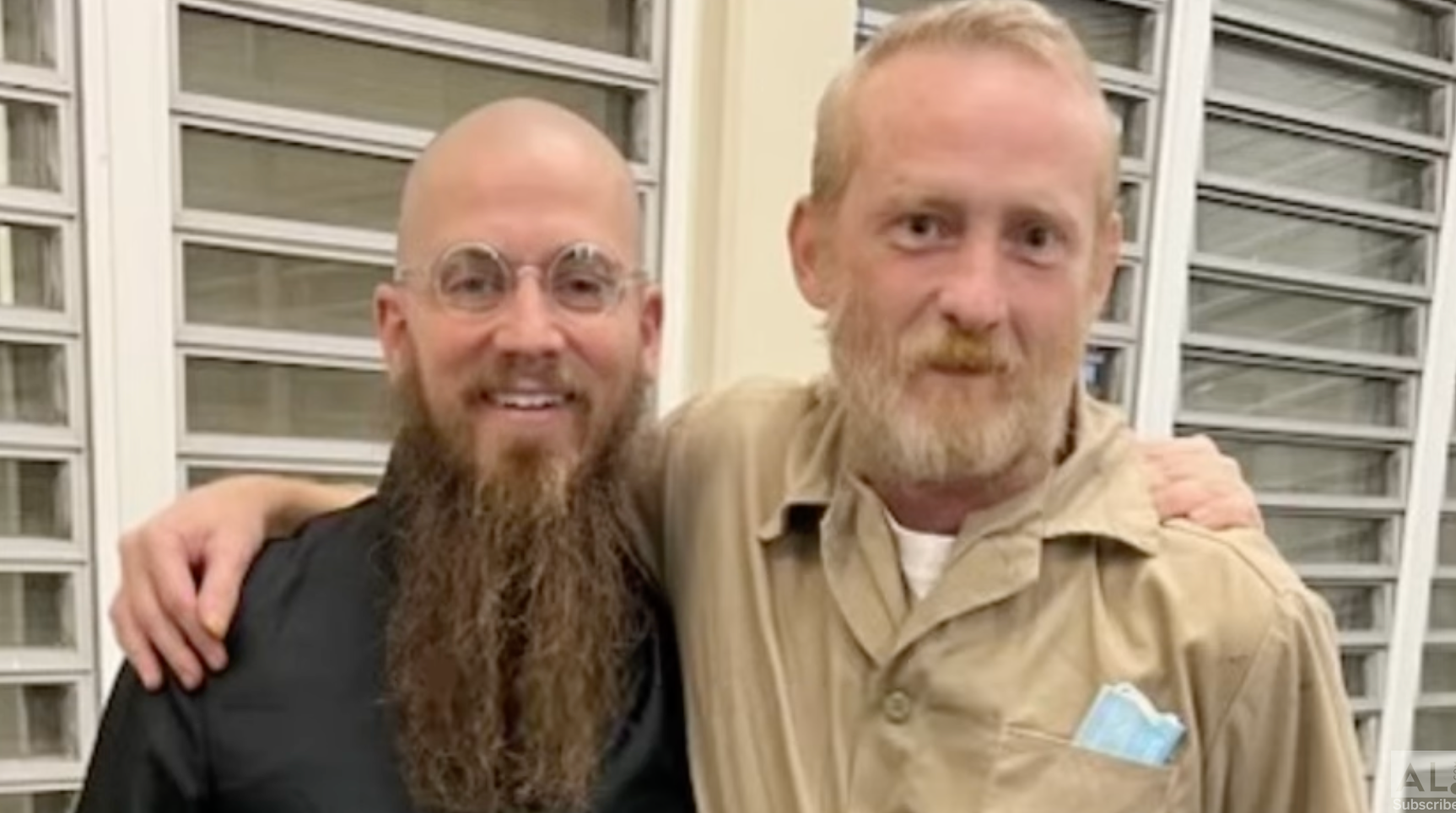
Dr Zivot cites studies that have shown the use of nitrogen gas to deprive healthy humans of oxygen and that after 15 or 20 seconds, around 80 per cent of participants had seizures.
Were the inmate to have a seizure they would stop breathing, so how could they continue to inhale the deadly dose of nitrogen?
Dr Zivot says the form of execution requires the tacit cooperation of the prisoner, and that he fears the state could put pressure on Smith to comply.
For example, an inmate could just hold their breath and make a scene of it. The prisoner could move their head about to force the mask off.
“Killing inmates lawfully, killing them constitutionally seems to be a concept that is elusive to members of the (Alabama Department of Corrections) and the courts.”
Dr Zivot plans to attend and observe the execution and perform an autopsy on Smith, in the event it goes through. But he says that nobody should sign a waiver acknowledging they could be exposed to the lethal dose, whether it be religious observers or corrections staff.
“This is just a gross display of serious and abject incompetence. This is the bloodlust of these people, who are willing to kill other people, just so they can kill Kenny Smith,” Dr Zivot says.
Dr Hood describes Alabama’s secretive protocols around the use of nitrogen as a “tyranny of vagueness”.
“They are able to say very little so they can do whatever they want to do.”
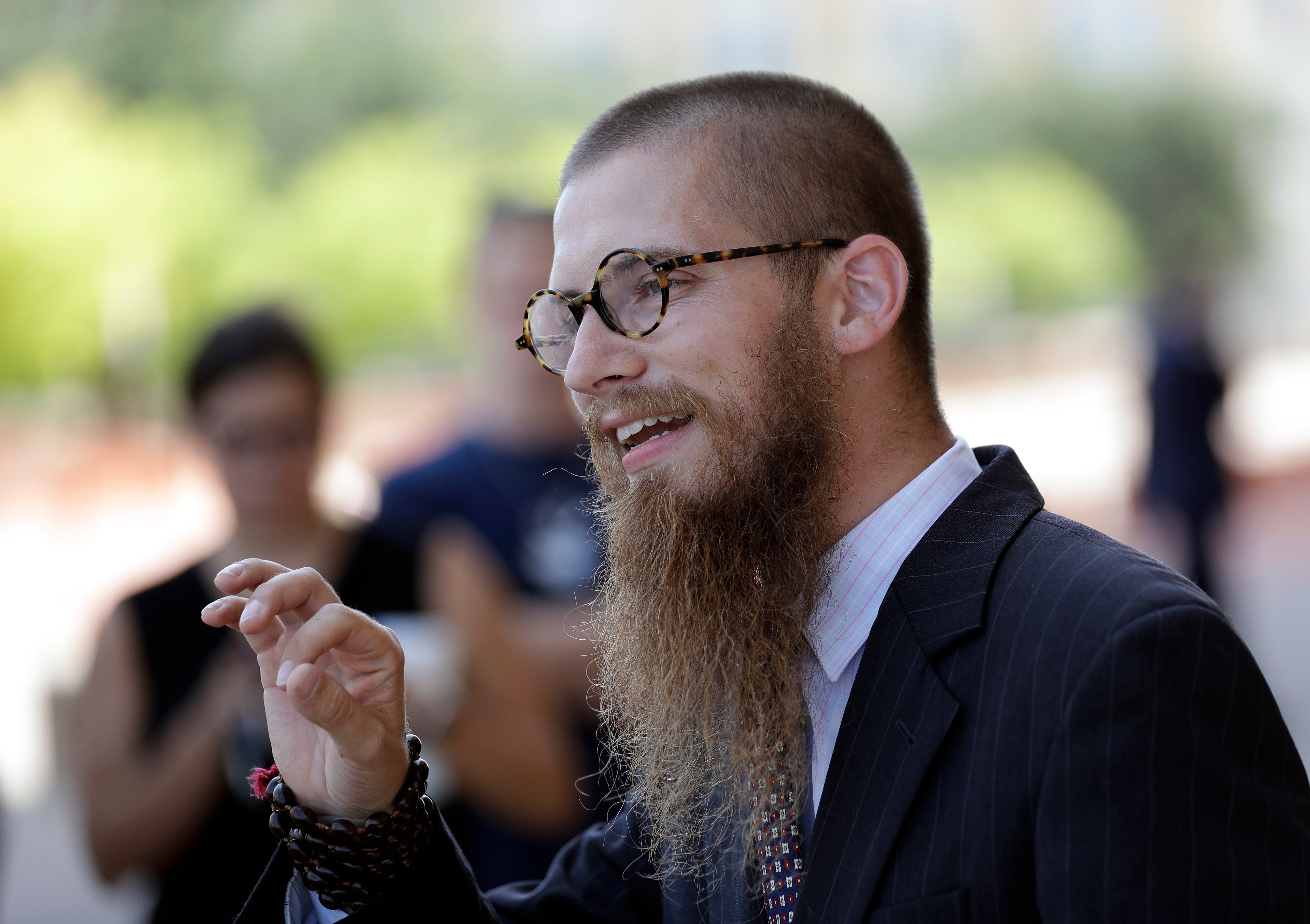
In May 2022, the Supreme Court ruled that religious advisers must be permitted to touch and audibly pray during an execution.
However, Dr Hood believes the state is deliberately creating an atmosphere as hostile as possible towards religious advisers to discourage their involvement.
“They are trying to make this process one that they have complete control over. And I can’t think of a more intentional way of controlling a spiritual adviser than making them think that the state is going to kill them for participating.
“If these are people who botched three lethal injections, can you imagine that they are going to be the first person to use nitrogen hypoxia and do so successfully? This would be like asking my 8-year-old son to play one-on-one with LeBron James.”
The married father of five children under 12 told The Independent he was prepared to die to be able to administer Smith his last rites.
But he adds that the thought of corrections officials handling deadly amounts of nitrogen was frightening.
Dr Hood said he speaks to Smith multiple times a day, and that “Kenny” is highly aware of the various legal challenges.
“With Kenny, this is someone who has been through absolute hell. It’s a whole nother level of hell to be playing games with this person’s life.”
Dr Hood said that Alabama elected officials like to wrap themselves in a cloak of evangelical Christianity, but their cruel enforcement of the death penalty tells a different story.
By filing the lawsuit contesting the state’s ability to restrict his administering last rites to Smith, he hopes to deliver a message: “Y’all are a bunch of hypocrites”.
“If nitrogen hypoxia becomes a thing all over the country, we’re not just going to throw religious liberty out the window. We are going to fight for the rights of the condemned.
“(AG Marshall) is defending a system that has not just denied religious liberty, but has done so with an ambivalence, with a shrug.”
‘Concept of cruelty’
Smith was convicted in the 1988 murder-for-hire slaying of Elizabeth Sennett in Alabama’s Colbert County.
He confessed to being one of two men who were each paid $1,000 to kill Sennett on behalf of her husband Charles Sennett, who was deeply in debt and wanted to collect on insurance, according to court documents.
His accomplice in the plot, John Forrest Parker, was executed in 2010. Charles Sennett, a Church of Christ pastor, killed himself after detectives suspected he had ordered the hit on his wife.
Smith was sentenced to death in 1989, but it was overturned on appeal in 1992. A jury then sentenced him to life without parole by a vote of 11 to one, which was overruled by the judge who gave him the death penalty for a second time in 1996.
States that use lethal injections have struggled for years to source the cocktail of drugs used in the procedure after manufacturing companies began restricting their use.
Dr Zivot has conducted autopsies on death row prisoners executed by lethal injection and says that claims that it is a humane form of execution are no longer backed up by science.
“In 80 per cent, prisoners’ lungs are filled with bloody, frothy fluid. This claim that the method is akin to falling off to sleep no longer holds, it is in fact like death by drowning.
“States are a little worried that the jig is up on lethal injection, and I think most people would agree death by drowning would be cruel. But the Supreme Court struggles with this concept of cruelty.”
In 2014, Oklahoma state representative Mike Christian first proposed using nitrogen gas as a method of execution after several botched executions in the state, based on a report by a criminal justice professor.
Trip Pittman, the former Alabama state senator who proposed nitrogen asphyxia as an execution method, has disputed that it is experimental in previous interviews.
Mr Pittman has said that even though no state has carried out a death sentence with nitrogen, people have died by breathing nitrogen during industrial accidents and suicide attempts.
The use of nitrogen hypoxia has been the subject of delays in Alabama that have focused not on whether it is inhumane, but logistical issues of how it would be administered.
Even though the legal case for nitrogen asphyxia remains shrouded in secrecy and confusion, Alabama is pushing ahead with it anyway.
The Alabama Department of Corrections did not respond to a request for comment by The Independent.
The Independent and the non-profit Responsible Business Initiative for Justice (RBIJ) have launched a joint campaign calling for an end to the death penalty in the US. The RBIJ has attracted more than 150 well-known signatories to its Business Leaders Declaration Against the Death Penalty – with The Independent as the latest on the list. We join high-profile executives such as Ariana Huffington, Facebook’s Sheryl Sandberg and Virgin Group founder Sir Richard Branson as part of this initiative and are making a pledge to highlight the injustices of the death penalty in our coverage.
Join our commenting forum
Join thought-provoking conversations, follow other Independent readers and see their replies
Comments